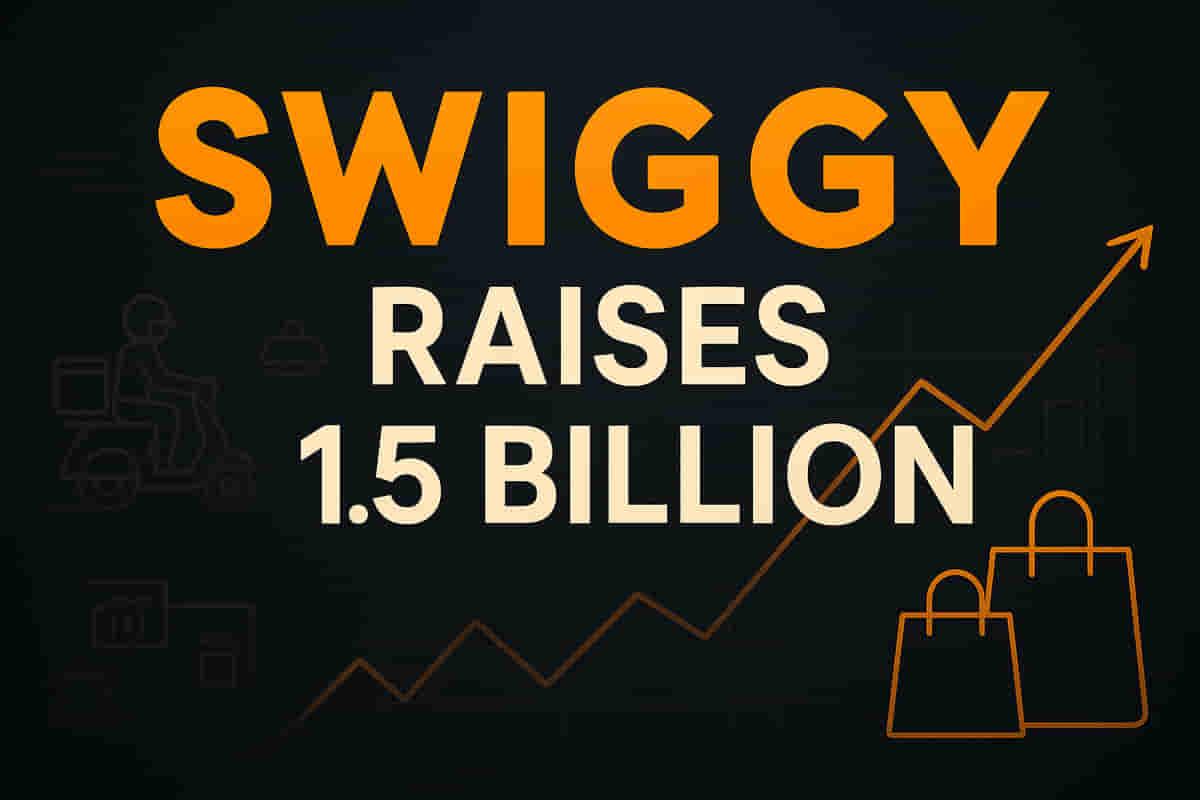Swiggy Eyes Up To $1.5 Billion Funding Via QIP to Fuel Quick Commerce Growth
Startups/VC
|
Updated on 30 Oct 2025, 06:03 am
Reviewed By
Aditi Singh | Whalesbook News Team
Short Description :

▶
Detailed Coverage :
Foodtech major Swiggy is reportedly in the early stages of discussions to raise a significant amount, between $1 billion and $1.5 billion, through a Qualified Institutional Placement (QIP). The primary objectives of this substantial capital infusion are to bolster Swiggy's balance sheet and to accelerate the expansion of its quick commerce operations. Specifically, the company is considering transitioning its quick commerce arm, Swiggy Instamart, to an inventory-led model, a strategy successfully adopted by competitors such as Blinkit. This move could enhance control over product availability and delivery times. The quick commerce segment is experiencing rapid growth, but it also involves considerable expenditure, leading to high cash burn for leading players like Instamart, Zepto, and Blinkit. This fundraising effort follows Zepto's recent $450 million raise aimed at strengthening its financials and preparing for further expansion. Swiggy is also reportedly open to raising capital independently for Instamart, especially after announcing plans to hive off its quick commerce business into a separate subsidiary.
Impact This news has a significant impact on the Indian stock market and business landscape. It signals strong investor confidence in the Indian startup ecosystem, particularly in the burgeoning quick commerce sector. The substantial capital infusion could lead to intensified competition, innovation, and potentially more efficient delivery services for consumers. It also sets a positive precedent for future funding rounds for other Indian tech companies and could influence market sentiment. Impact Rating: 8/10
Difficult Terms: * Qualified Institutional Placement (QIP): A method for companies to raise capital by issuing shares or other securities to qualified institutional buyers (like mutual funds, venture capital funds, insurance companies) without the need for a public offering. It's generally a faster route to capital raising. * Balance Sheet: A financial statement that summarizes a company's assets, liabilities, and shareholders' equity at a specific point in time. A strong balance sheet indicates good financial health. * Quick Commerce: A rapid delivery service model focused on delivering items, such as groceries and daily essentials, within a very short timeframe, typically 10-30 minutes. * Inventory-led model: A business model where the company directly owns and manages the stock of goods it sells. This allows for better control over product availability and delivery speed but requires significant investment in warehousing and inventory management. * Cash Burn: The rate at which a company spends its available cash, especially during its growth or startup phases, often when revenue does not yet cover expenses.
More from Startups/VC

Startups/VC
a16z pauses its famed TxO Fund for underserved founders, lays off staff
Latest News

Auto
Suzuki and Honda aren’t sure India is ready for small EVs. Here’s why.

Brokerage Reports
Stocks to buy: Raja Venkatraman's top picks for 4 November

Mutual Funds
Quantum Mutual Fund stages a comeback with a new CEO and revamped strategies; eyes sustainable growth

Tech
Why Pine Labs’ head believes Ebitda is a better measure of the company’s value

Banking/Finance
SEBI is forcing a nifty bank shake-up: Are PNB and BoB the new ‘must-owns’?

Industrial Goods/Services
India’s Warren Buffett just made 2 rare moves: What he’s buying (and selling)
Renewables Sector

Renewables
Brookfield lines up $12 bn for green energy in Andhra as it eyes $100 bn India expansion by 2030
Energy Sector

Energy
India's green power pipeline had become clogged. A mega clean-up is on cards.
Renewables Sector

Brookfield lines up $12 bn for green energy in Andhra as it eyes $100 bn India expansion by 2030
Energy Sector
